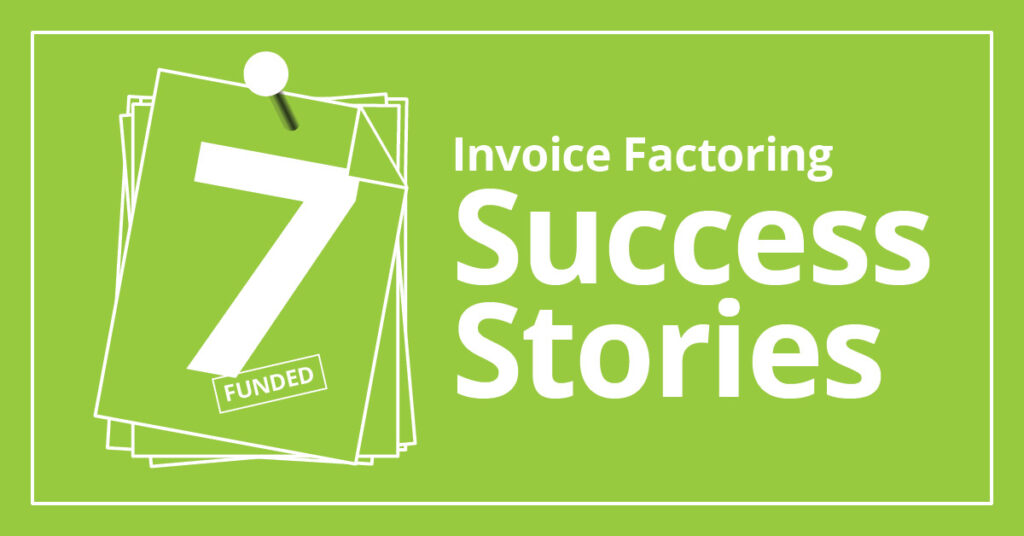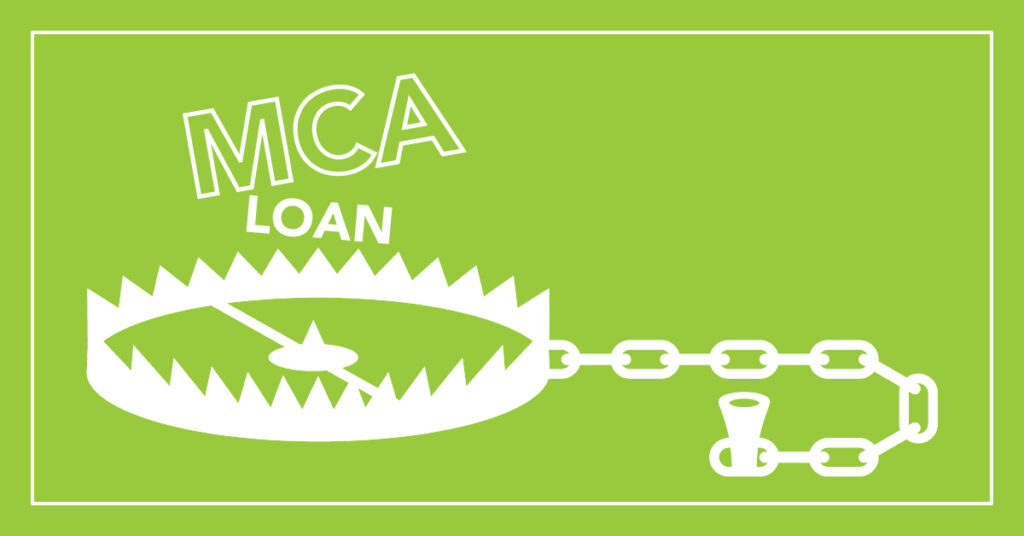FACTORING RESOURCES
7 Reasons Real Businesses Used Invoice Factoring to Grow Their Business
Nov 21, 2023

In the world of business finance, the art of managing cash flow can make the difference between survival and success. Many businesses, whether they’re startups with dreams of greatness, established firms looking for expansion, or seasoned veterans of their industries, turn to invoice factoring to improve their cash flow.
In this article, we’ll delve into real-life examples of how factoring helped businesses meet their financial demands.
Business #1: Ability to Secure a Large Contract
A global logistics startup had the opportunity to secure a substantial aerospace contract.
It’s a familiar story—a promising startup with a robust business plan and a huge opportunity. Yet, despite the potential, they fell short of meeting the criteria needed to secure traditional bank financing. This is where invoice factoring was able to support. Factoring companies don’t solely review the financials of the startup itself; instead, they evaluate the creditworthiness of the startup’s customers.
So while this startup had a limited financial history, the historical financial track record of their first big customer allowed them to qualify for factoring.
Business #2: Returning to Profitability After Chapter 11
For companies that have weathered the storm of Chapter 11 reorganization, restoring profitability is a significant goal. A steel fabrication company underwent a Chapter 11 restructuring and was able to turn to factoring to support its recovery. Invoice factoring is not a loan but a sale of accounts receivable, so it doesn’t add debt to the company’s balance sheet. Factoring provided the cash flow required to make payroll and pay suppliers on time.
Business #3: Supplementing a Bank Line of Credit
Banks often refer businesses to factoring when they require supplementary capital for growth outside the scope of their traditional line of credit (LOC) with that bank. An industrial distributor, for instance, was directed to factoring by their bank to meet their expanding needs. Before factoring, their aging reports were misleading, as they were issuing invoices with months old dates. However, factoring led to greater accuracy in their financial records, equipping them to bid on new projects and make material purchases with confidence.
Business #4: Sustaining Growth After a Technological Breakthrough
Innovation can be a catalyst for growth, but it often necessitates a steady stream of working capital. Consider a heat treatment company that made a breakthrough discovery that is growing their business at a rapid pace. With invoice factoring, the company can meet the huge influx in demand, embrace substantial contracts, issue weekly invoices, and consistently meet payroll.
Business #5: Meeting Payroll on Large Projects
The path to profitability for some businesses does not require factoring every invoice, but selectively focused on larger projects. For example, an oil and gas company did not need to factor smaller invoices, but did need cash flow support for deals exceeding $100,000. This selective strategy allowed the business to maintain flexibility, meet their objectives, and ensure they could say yes to the biggest jobs.
Business #6: Navigating Seasonal Fluctuations
A logistics company’s peak season is from August to November each year. The seasonal variability made it hard for the bank to give it a line of credit to meet the height of demand. During that time of year, invoice factoring equips them with the necessary financial resources to manage operations and pay vendors and employees efficiently, even before customer payments are received.
Business #7: Aligning Customer and Vendor Payment Terms
Sometimes, customer payment terms don’t neatly align with vendor payment requirements, creating a financial mismatch. A relatively new subsea company found itself in this scenario with customers offering payment terms of 45-60 days but vendors requiring payment in 30 days. Invoice factoring resolved this misalignment, empowering the company to meet its vendor commitments promptly and maintain seamless operations.
These real-world examples illustrate the versatility and power of invoice factoring in helping businesses overcome financial challenges and fuel their growth. What questions do you have about invoice factoring?










